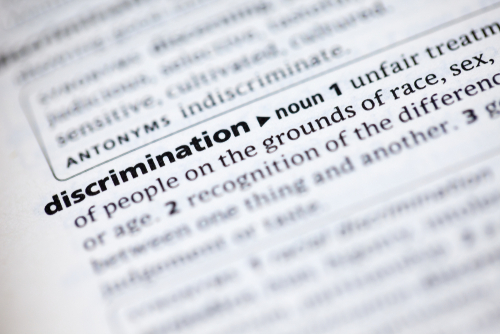3 female Yale students who protested against Kavanaugh sue school's fraternities for discrimination

Photo by Contimis Works/Shutterstock.com.
A lawsuit filed Tuesday by three female students against Yale University and its nine off-campus fraternities alleges that policies allowing only male fraternity members amount to gender discrimination.
The three undergraduate students say they were sexually harassed and groped at fraternity parties, and Yale fosters the hostile environment by allowing fraternities to use the Yale name as well as its email addresses, bulletin and campus facilities.
“Yale and the fraternities are public accommodations with a symbiotic relationship,” the suit says. The New York Times, the Connecticut Law Tribune and CBS News have coverage of the suit, filed in federal court in Connecticut.
The plaintiffs are Anna McNeil, Eliana Singer and Ry Walker. According to the Connecticut Law Tribune, news reports indicate the plaintiffs also were involved in protests against Justice Brett M. Kavanaugh, a former Yale graduate who’s now on the U.S. Supreme Court.
“Upon information and belief,” the suit says, “Yale made deliberate decisions to phase out many on-campus events, knowing full well that this would increase the number of students—particularly first-year students—attending fraternity parties. Now, the fraternities provide party venues (and alcohol) to Yale students, and in exchange, Yale allows the fraternities to use Yale resources (and recruit Yale students) and largely turns a blind eye to the sexual harassment and assault occurring in connection with the fraternities.”
The suit was filed by Sanford Heisler Sharp, according to a press release. The law firm also has represented female lawyers suing their law firms for alleged discrimination.
The plaintiffs allege violations of Title IX, the Fair Housing Act, Connecticut’s law against housing discrimination, the Connecticut Unfair Trade Practices Act, and breach of contract for failure to provide promised educational environment.
The suit seeks class action status and requests:
• An order requiring fraternities to admit women and integrate them into governance, as well as alumni and career networks.
• An order requiring fraternities to adopt transparent policies for investigating sexual harassment and assault and to institute training that addresses issues of sexual assault and safe party management.
• An order requiring fraternities to hire paid bouncers and sober monitors for fraternity parties and to offer food as well as equal amounts of alcoholic and nonalcoholic beverages at parties.
• An order requiring Yale to bar all student organizations, including those that are unregistered or operating off-campus, from engaging in discrimination or harassment based on sex, gender or gender identity.
• An order requiring Yale to create transparent procedures for investigating complaints against social organizations.
• Damages against Yale and the fraternities.
Yale spokesman Thomas Conroy wouldn’t comment on the lawsuit, but he told the publications that Yale investigates any complaint of sexual misconduct by students.
Conroy also referred to previous remarks by Yale’s dean that said the university plays no formal role in organizations not affiliated with the university, and the school is working on providing alternative social events.
A lawyer for the fraternities, Joan Gilbride, told the New York Times the accusations are “baseless and unfounded.”



